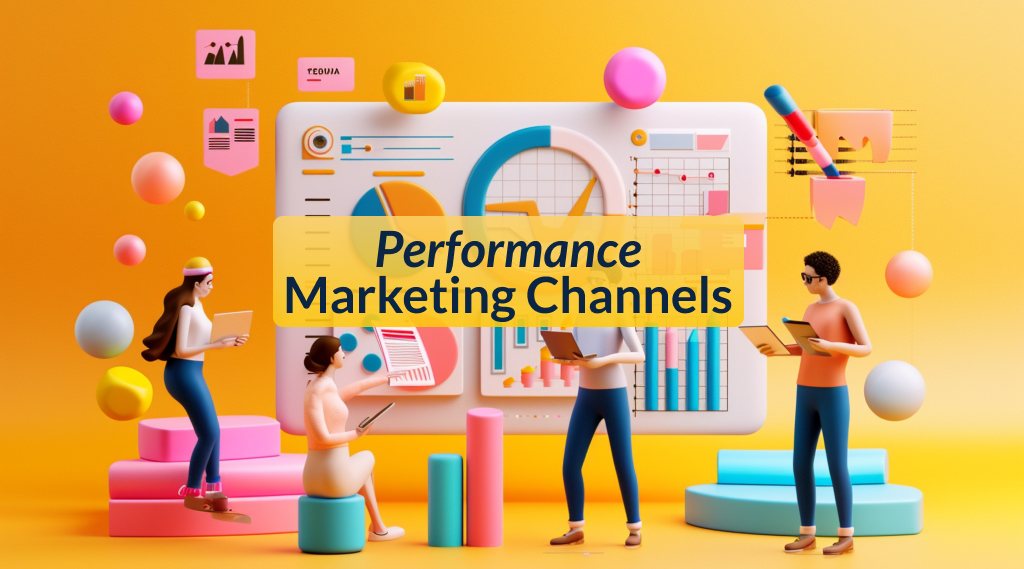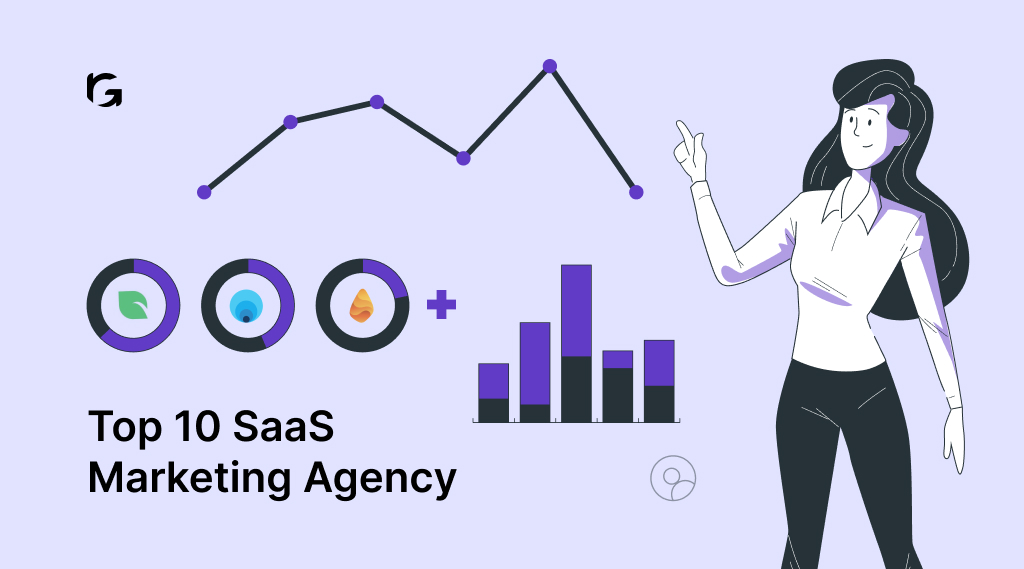Introduction
Performance marketing channels are avenues through which businesses drive measurable results and direct response from their marketing efforts. Unlike traditional marketing that focuses on brand awareness and impressions, performance marketing revolves around specific actions or conversions, such as clicks, sign-ups, purchases, or other desired outcomes.
These channels leverage data-driven strategies and analytics to optimize campaigns in real-time, ensuring maximum efficiency and return on investment (ROI). Moreover, these channels offer valuable insights into consumer behavior, allowing marketers to refine audience targeting and personalize messages for better engagement.
In essence, performance marketing channels empower businesses to allocate budgets more efficiently, focusing on strategies that deliver tangible results and optimizing campaigns to achieve specific objectives, whether it’s lead generation, sales, or brand engagement. Let us discover more about what performance marketing actually is.
What is performance marketing?
Performance marketing is a comprehensive approach to advertising and promotion that prioritizes measurable results and quantifiable actions. Unlike traditional marketing, which often focuses on broad brand awareness, performance marketing centers on specific, trackable actions that drive direct response and engagement from the audience.
The essence of performance marketing lies in its emphasis on measurable outcomes and a pay-for-performance model. Advertisers pay based on predetermined and measurable actions, such as clicks, conversions, leads, or sales, rather than just for ad placement or exposure.
Key characteristics of performance marketing include:
1. Measurable goals: Performance marketing campaigns are built around clear, quantifiable objectives. Whether it’s acquiring a certain number of leads, achieving a target return on investment (ROI), or driving a specific volume of sales, these goals are measurable and trackable.
2. Data-driven strategies: Data analysis is fundamental in performance marketing. Marketers rely on analytics and insights to understand audience behavior, optimize campaigns in real-time, and make informed decisions. This data-driven approach allows for continuous refinement and improvement.
3. Precise targeting: Performance marketing thrives on precision in targeting the right audience segments. By leveraging data and various targeting parameters, marketers can reach specific demographics, behaviors, interests, and even intent-driven audiences.
4. Pay-for-performance model: Advertisers only pay when desired actions or outcomes occur. This model ensures a more accountable and cost-effective approach, as costs are directly tied to the performance of the campaign.
5. Multichannel approach: Performance marketing spans various online channels and platforms, including search engines, social media, email, affiliate networks, and more. It harnesses the strengths of each channel to reach audiences at different touchpoints in their buying journey.
6. Optimization and adaptability: Campaigns are continuously optimized based on real-time data and insights. Marketers adapt strategies, creative elements, and targeting parameters to improve performance and achieve better results.
Overall, performance marketing is a dynamic and results-oriented approach that aligns marketing efforts with specific business objectives.
It thrives in the digital landscape by leveraging technology, analytics, and precise targeting to deliver measurable outcomes, making it a favored strategy for businesses aiming to drive tangible results and maximize ROI.
Top 7 successful performance marketing channels in 2024
Several performance marketing channels continue to demonstrate effectiveness in driving measurable results and engagement for businesses:
1. Search engine marketing (SEM):

SEM remains a powerhouse among performance marketing channels. With platforms like Google Ads and Bing Ads, advertisers bid on keywords relevant to their audience. Paid search ads appear prominently in search results, targeting users actively seeking information or solutions, ensuring high intent and potential conversions.
2. Social media advertising:

Social media platforms continue to offer robust advertising opportunities. Platforms like Facebook, Instagram, LinkedIn, Twitter, and emerging ones provide precise audience targeting based on demographics, interests, behaviors, and even AI-driven predictive targeting. Interactive ad formats and advanced analytics further enhance the effectiveness of social media ads.
3. Content marketing and SEO:
Organic search traffic from content marketing and search engine optimization (SEO) remains crucial. Creating high-quality, optimized content that addresses user queries and provides value is essential for ranking well in search results, attracting organic traffic, and nurturing leads throughout the buyer’s journey.
4. Influencer marketing:

Collaborating with influencers allows brands to leverage their credibility and reach highly engaged audiences. Influencers, across various niches and platforms like YouTube, TikTok, and Instagram, can significantly impact audience behavior and drive conversions through authentic endorsements and sponsored content.
5. Email marketing:
Despite evolving trends, email marketing remains a potent channel for nurturing leads and maintaining customer relationships. Personalized, segmented email campaigns tailored to specific buyer personas and lifecycle stages drive engagement, conversions, and customer retention.
6. Programmatic advertising:
Programmatic advertising utilizes AI and algorithms to automate ad buying and placement in real-time. This technology-driven approach enables precise targeting, efficient ad buying, and optimization across various ad formats and placements on websites, apps, and streaming services.
7. Affiliate marketing:
Collaborating with affiliates or partners to promote products or services remains a cost-effective way to expand reach and drive conversions. The performance-based model ensures that advertisers pay for results, making it a low-risk, high-reward channel.
These channels stand out due to their ability to deliver measurable results, precise targeting capabilities, and adaptability to changing consumer behavior and technological advancements. However, the effectiveness of each channel may vary based on industry, target audience, and campaign objectives, necessitating a strategic approach and continuous optimization to achieve optimal performance.
Benefits of performance marketing
Performance marketing offers several distinct advantages for B2B SaaS (Software as a Service) companies, leveraging its precision, scalability, and measurable outcomes to drive growth and success in this industry:
1. Measurable ROI:
For B2B SaaS, where ROI is crucial, performance marketing shines. It allows precise tracking of marketing spend and directly correlates it with measurable outcomes such as lead generation, free trials, demos, or subscription sign-ups. This transparency in ROI helps optimize budgets and channels to maximize conversions, ensuring every marketing dollar generates tangible results.
2. Targeted audience reach:
B2B SaaS often has niche markets and specific buyer personas. Performance marketing enables precise audience targeting based on job titles, industries, company sizes, and behaviors. This precision ensures that marketing messages reach the right decision-makers and influencers, increasing the likelihood of conversions.
3. Scalability and flexibility:
Performance marketing campaigns are highly scalable and adaptable. B2B SaaS companies can expand or refine campaigns swiftly based on performance metrics and market changes. Whether scaling to new markets, adjusting messaging, or experimenting with new channels, the agility of performance marketing allows for quick adjustments to optimize outcomes.
4. Data-driven decision making:
Data analytics is at the core of performance marketing. B2B SaaS companies can leverage data insights to understand customer behavior, preferences, and pain points. This information helps tailor marketing strategies, personalize communication, and refine product offerings to better meet customer needs, leading to higher conversion rates.
5. Lead nurturing and conversion optimization:
Performance marketing strategies enable B2B SaaS companies to implement sophisticated lead nurturing campaigns. By utilizing targeted content, email sequences, and retargeting efforts, they can guide potential customers through the sales funnel, educating and persuading them towards conversion, whether it’s a free trial or a subscription.
6. Cost-efficiency and budget control:
With performance marketing, B2B SaaS companies pay only for actual results achieved. This cost-effective model ensures better budget control, focusing resources on channels and campaigns that generate the highest returns. It minimizes wasted ad spend on ineffective strategies or irrelevant audiences.
In summary, performance marketing empowers B2B SaaS companies with precise targeting, measurable outcomes, data-driven strategies, and cost-efficiency. By leveraging these benefits, they can efficiently acquire, nurture, and convert leads, driving sustainable growth in a competitive market landscape.
Key takeaways
Performance marketing stands as a dynamic and essential approach in today’s ever-evolving digital landscape. Its emphasis on measurable outcomes, data-driven strategies, and precise targeting has reshaped how businesses engage with their audiences and achieve concrete results. As we reflect on the intricacies and impact of performance marketing, it’s clear that this methodology offers a transformative path to success for modern businesses.
Ultimately, the success of performance marketing lies in its ability to not just drive short-term results but to foster long-term, sustainable growth. It empowers businesses to make informed, data-backed decisions, continually refine their approaches, and build lasting relationships with their audiences.



